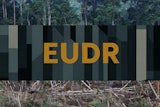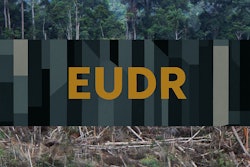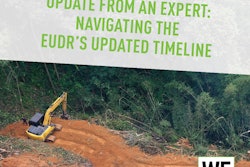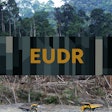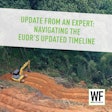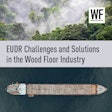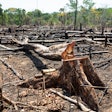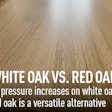We're continuing our look at the ILP, which, as a refresher, is collectively two related bits of legislation: the Illegal Logging Prohibition Act 2012 and the Illegal Logging Prohibition Amendment Regulation 2013.
The Australian government has generally outlined a four-step due diligence process for importers and first-tier domestic producers.
1. Do "basic research." This is to be done by the importer/processor to understand the risk level for a species and where it was harvested for their current or planned supply chain.
2. (Unlike Lacey), if the product is covered by a third-party system such as FSC, PEFC, or a recognized legality verification program (such as EU FLEGT licensing), that is considered sufficient demonstration of little or no risk to handle without further research or risk mitigation. If the product is not covered by a thiparty system, the company must determine risk using against four risk factors or use a Country Specific Guideline that Australian Government is currently preparing in collaboration with many other countries.
3. If the product is found to be low risk, then the company may consider their due diligence completed and the business can proceed.
4. If the product is found to be anything other than low risk, the company must take documented steps to mitigate that risk before continuing the business. The risk mitigation is not specific but must be "adequate and proportionate" to the risk.
The Country Specific Guidelines are a very interesting development. Meant to assist importers of wood harvested in those countries, they should provide quick shortcuts of what the exporting country regards as "legal timber". The first one produced is for the Solomon Islands. Other country guidelines will follow for Australia's major trading partners-not just countries that are regarded as not low risk, either.
Importers of these regulated timber products will also be required to make a declaration of compliance with the Regulation with Customs when they import. Unlike Lacey, however, this declaration will be just a yes/no type declaration and answering no will not result in goods being held up at the border. The compliance authority (Australian Department of Agriculture in this case) is likely to be following up those who answer no. Public advice from the Australian government is that for the first 18 months after Nov. 30, 2014, their emphasis will be on educating industry how to comply rather than trying to "catch out" businesses not complying.
Penalties are at the discretion of a court; the maximum penalties that may be applied currently are:
- five years imprisonment, and/or
- $85,000 for an individual, and/or
- $425,000 for a corporation
- plus forfeiture of timber product / raw logs
The Australian Timber Industry has also been on the front lines in preparing for the Regulation. They have developed a range of tools, templates and additional detailed information about due diligence. Largely based on the tools and templates produced for European Timber Trade Federation as well as assorted U.S. sources, they have been modified for the Australian legislation. These are freely available to domestic and international companies.
The risk based approach of the Australian legislation means that exporters to Australia of products made from wood which is generally regarded as little or no risk, such as U.S. and Canada, shouldn't have to do anything particularly onerous for their Australian customers to justify a low (or better) risk rating. However it's expected that Australian importers will take a while to understand the legislation and what information they need to ask (or not ask!) for. The good work of organizations such as AHEC for exporters to the EU in supplying a standardized form of information will greatly assist importers to Australia.
For more Australian Government information: www.daff.gov.au/forestry/policies/illegal-logging
For more Australian industry timber due diligence information:www.timberduediligence.com.au










